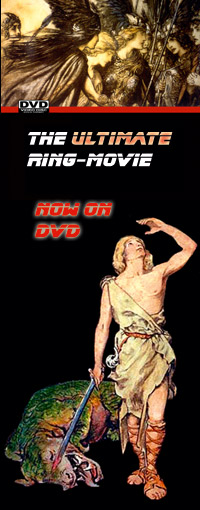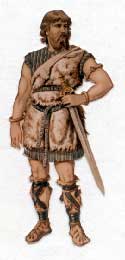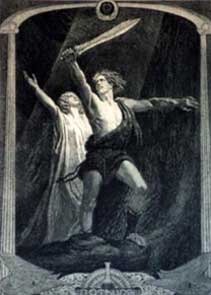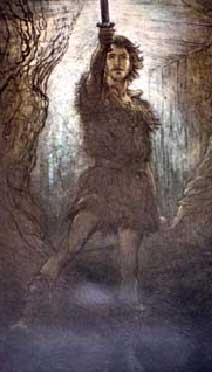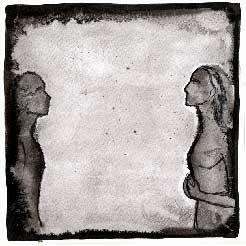![]()

![]()
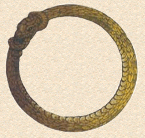
|
opera online sitemap |
||
It will be necessary that Sieglinde explain their gemellarity to him, so that he understands it. Siegmund like Siegfried love freedom and reject the laws. Alive in the present moment, he is incapable of establishing the slightest link of cause and effect. He merely notices that his values are opposite to those of society, without trying neither to adapt himself to them nor to wonder about their validity. He is an epic character by his long story of pursuing. He likes story telling.
He is well placed to know the fate reserved for him; the girl he defended was killed. We can imagine the punishment reserved by the servants of Fricka - Neidingen for incest and adultery! It is the most plausible version.
A third characteristic of Siegmund is his unmistakable humanity. For the first time in the Ring, appears a being inspired by Freia. Siegmund is sensitive to the beauty of Nature (the song of the Spring) and the beauty of a woman. This feeling inspires him one of the rare poetic passages of all the tetralogy. He gives a wholesome lesson to the Walkyrie, which is surprised to see to prefer a poor sick woman to the bliss of Wotan's wishmaidens. For the first time also, appears love, tenderness, and the feelings of Siegmund are contagious. They are passed on to the Walkyrie, who, upset, will find the stamina to oppose to the Iron Law of Power. Finally, Siegmund is brave. Not in the style of the young unconscious who plays his life at the roulette because he believes he is immortal. But as any conscious being who knows suffering and fear, and who being true to himself carries the burden of life, which he hates. This courage takes several forms: heroic when he tears away Nothung from its sheath and when he faces Hunding in fight, quiet and noble when he resists the Walkyrie and accepts death.
The one that describes the fate of wolves, the Wälsungen, consists of three successive sections: a sort of heroic and funeral march, which accelerated turns into aggressive fanfare, this march is followed by a plaintive theme evoking an unfortunate fate, finally a third very sweet and almost comforting, major section resulting in a desperate conclusion.But when Siegmund evokes women in one way or another, the vocal line takes on extreme inflections of sweetness and longing joined to a delicacy of nuances which contrasts strongly with the heroic and aggressive breaks of the stories. What else can one add? do free music and video downloads and free internet music downloads of soap opera spoilers and free video downloads today. make days of our lives soap opera and in passions soap opera for soap opera to download music. buy music videos of phantom of the opera with free music scores and free sheet music on classical music downloads. do free music and video downloads and make free internet music downloads of soap opera spoilers and free video downloads today. make days of our lives soap opera and in passions soap opera for soap opera to download music. buy music videos of phantom of the opera with free music scores and free sheet music on classical music downloads. |
|||||||||||||
|
|
|||||||||||||
Free DHTML scripts provided by
Dynamic Drive


